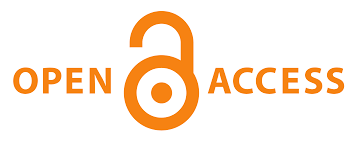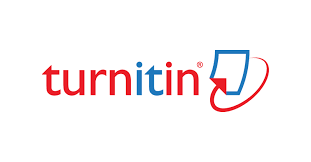Classroom Evaluation: Learners’ Perspectives on The Teaching Approach in A Second Language Writing Course
Main Article Content
Ella Yuzar
Second language writing instructors remain to experience a great deal of difficulty to find the most effective approach for assisting students to the improvement of second language (L2) writing. Teachers might claim that they have provided their students with everything they require and that they have utilized the most effective method for the teaching tasks. By doing an explanatory mixed-method on students’ personal learning experiences, the study suggests that the teachers in the L2 writing subject are to adopt the process-genre approach, by incorporating real-context materials. The teacher also could improve students' understanding of the varieties and functions of text by exposing them to authentic texts. In addition to that, using the process-genre approach, learners might have a more relevant and sensible writing instructions. Therefore, the implementation of a reflection study to evaluate an L2 writing course has yielded valuable information for language instructors, particularly writing instructors, informing them of the most appropriate method to use in the second language classroom.
Alshuraidah, A., & Storch, N. (2019). Investigating a collaborative approach to peer feedback. ELT Journal, 73(2), 166-174.
Andrews, R., Torgerson, C., Beverton, S., Freeman, A., Locke, T., Low, G., Robinson, A., & Zhu, D. (2006). The effect of grammar teaching on writing development. British Educational Research Journal, 32(1), 39-55.
Badger, R., & White, G. (2000). A process genre approach to teaching writing. ELT journal, 54(2), 153-160.
Brooks, C., Burton, R., van der Kleij, F., Ablaza, C., Carroll, A., Hattie, J., & Neill, S. (2021). Teachers activating learners: The effects of a student-centred feedback approach on writing achievement. Teaching and Teacher Education, 105, 103387.
Brown, J. D. (1995). The elements of language curriculum: A systematic approach to program development. Heinle & Heinle Publishers, 20 Park Plaza, Boston, MA 02116.
Chou, C. (1998). Evaluation and Needs Analysis of an Academic Writing Course for International Graduate Students: ELI 83.
Creswell, J. W., & Plano Clark, V. L. (2018). Designing and Conducting Mixed Methods Research (3rd ed.). Sage Publications.
Double, K. S., McGrane, J. A., & Hopfenbeck, T. N. (2020). The impact of peer assessment on academic performance: A meta-analysis of control group studies. Educational Psychology Review, 32(2), 481-509.
Ferris D. R. & Hedgcock J. S. (2005). Teaching ESL composition: purpose, process, and practice. Mahwah, NJ: Lawrence Erlbaum Associates.
Flower, L. (1994). The construction of negotiated meaning: A social cognitive theory of writing. SIU Press.
Flowerdew, J. (2015). John Swales's Approach to Pedagogy in Genre Analysis: A perspective from 25 years on. Journal of English for Academic Purposes, 19, 102-112.
Godwin-Jones, R. (2018). Second language writing online: An update. Language Learning & Technology, 22(1), 1–15. https://dx.doi.org/10125/44574
Grabe, W., & Kaplan, R. B. (2014). Theory and practice of writing: An applied linguistic perspective. Routledge.
Ha, A. S., O’Reilly, J., Ng, J. Y., & Zhang, J. H. (2019). Evaluating the flipped classroom approach in Asian higher education: Perspectives from students and teachers. Cogent Education, 6(1), 1638147.
Halliday, M. A. K., & Matthiessen, C. (2014). An introduction to functional grammar. Routledge.
Halliday, M. K. A. (1994). An Introduction to Functional Grammar. Second Edition. London: Edward Arnold.
Hapsari, E. W., & Sukavatee, P. (2018). Second language writing instruction: A recent practice in Indonesia. Journal of Linguistic and English Teaching, 3(1), 24-48.
Huang, Y., & Jun Zhang, L. (2020). Does a process-genre approach help improve students’ argumentative writing in English as a foreign language? Findings from an intervention study. Reading & Writing Quarterly, 36(4), 339-364.
Hudelson, S. (1988). Writing in a second language. Annual review of applied linguistics, 9, 210-222.
Huisman, B., Saab, N., van den Broek, P., & van Driel, J. (2019). The impact of formative peer feedback on higher education students’ academic writing: a Meta-Analysis. Assessment & Evaluation in Higher Education, 44(6), 863-880.
Hyland, K. (2003). Genre-based pedagogies: A social response to process. Journal of second language writing, 12(1), 17-29.
Hyland, K. (2007). Genre pedagogy: Language, literacy and L2 writing instruction. Journal of second language writing, 16(3), 148-164.
Hyland, K. (2019). Second language writing. Cambridge. UK: New York, N.Y.: Cambridge University Press.
Jannah, R., Fona, Z., Fakhriah, F., & Khaira, N. (2022). The Use of Poster Media to Enhance Student Learning Outcomes in Descriptive Text Writing. JETLEE: Journal of English Language Teaching, Linguistics, and Literature, 2(1).
Liu, C., & Yu, S. (2022). Reconceptualizing the impact of feedback in second language writing: A multidimensional perspective. Assessing Writing, 53, 100630.
Polio, C. (2017). Second language writing development: A research agenda. Language Teaching, 50(2), 261-275.
Racelis, J. V., & Matsuda, P. K. (2013). Integrating process and genre into the second language writing classroom: Research into practice. Language Teaching, 46(03), 382-393.
Rahman, F. (2020). Undergraduate Students’ perception Towards Grammar Assessment In The Efl Classroom. SAGA: Journal of English Language Teaching and Applied Linguistics, 1(2), 127-136.
Schillings, M., Roebertsen, H., Savelberg, H., van Dijk, A., & Dolmans, D. (2021). Improving the understanding of written peer feedback through face-to-face peer dialogue: Students’ perspective. Higher Education Research & Development, 40(5), 1100-1116.
Silva, T. (1990). Second language composition instruction: Developments, issues, and directions in ESL. Second language writing: Research insights for the classroom, 11-23.
Silva, T., & Matsuda, P. K. (2012). On second language writing. Routledge.
Silva, T., & Wang, Z. (Eds.). (2020). Reconciling Translingualism and Second Language Writing. Routledge.
Truscott, J. (1996). The case against grammar correction in L2 writing classes. Language learning, 46(2), 327-369.
Truscott, J. (1999). The case for “The case against grammar correction in L2 writing classes”: A response to Ferris. Journal of second language writing, 8(2), 111-122.
Truscott, J. (2007). The effect of error correction on learners’ ability to write accurately. Journal of second language Writing, 16(4), 255-272.
Zhang, Z. (2022). Promoting student engagement with feedback: insights from collaborative pedagogy and teacher feedback. Assessment & Evaluation in Higher Education, 47(4), 540-555.




